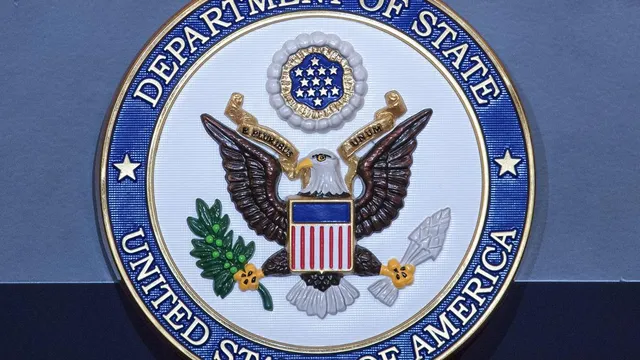
Dozens of USAID officials placed on leave amid Trump’s investigation
2025-01-28 21:28- Over 50 senior officials at USAID were placed on leave due to alleged actions against presidential directives.
- The leave was connected to an investigation following a 90-day pause on U.S. foreign assistance.
- This action raises concerns about the future governance of federal agencies and their humanitarian missions.
Express your sentiment!
Insights
On January 27, 2025, in the United States, over 50 senior officials at the U.S. Agency for International Development were placed on administrative leave as part of an ongoing investigation related to alleged actions that aimed to circumvent directives issued by President Donald Trump. This sweeping action was confirmed by several former and current officials within the agency, highlighting the contentious atmosphere in federal governance following Trump's recent executive orders. The decision specifically targeted experienced officials, many of whom had served across multiple administrations, signaling a drastic shift in the operation of a key agency tasked with coordinating foreign aid and development. The investigation stems from a broader context where the Trump administration had previously stipulated a 90-day pause on U.S. foreign assistance through an executive order aimed at reviewing aid programs to ensure they align with national interests. The implications of the leave placed on senior USAID officials are significant, with several insiders suggesting that this move could be perceived as an effort to intimidate and instill fear among remaining staff. These officials were involved in crucial negotiations to manage U.S.-funded aid organizations that were grappling with the repercussions of the funding freeze. The impact of these actions extends beyond personnel changes, potentially disrupting ongoing humanitarian efforts worldwide. Aid organizations had been preparing to implement significant shifts in their operational capabilities due to funding uncertainties caused by the administration's directives. Many essential staff were laid off, severely limiting the capacity to provide critical services such as healthcare, clean water, and emergency provisions to populations in need across various regions including conflict zones. Former officials expressed concern over the broader implications of these administrative moves, noting that career civil service employees typically work to implement policies in good faith, mediating between political directives and the operational realities required for effective aid delivery. Critics of the Trump administration's approach warn that creating an atmosphere of fear could hinder the ability of dedicated professionals to function effectively, thereby jeopardizing the mission of USAID to provide aid and support to the most vulnerable globally.
Contexts
The impact of USAID officials on humanitarian aid is a multifaceted subject that involves understanding the roles, responsibilities, and effectiveness of these key players in the delivery of aid. USAID, the United States Agency for International Development, oversees a vast portfolio of humanitarian assistance programs designed to address crises around the world, including natural disasters, conflict-induced emergencies, and health crises. Through the management of funds, resources, and partnerships, USAID officials play a crucial role in determining how aid is allocated and implemented in affected regions. Their expertise in navigating complex political, social, and logistical landscapes often significantly influences both the immediate response and long-term recovery efforts in humanitarian settings. USAID officials are tasked with ensuring that aid reaches the most vulnerable populations, often working in challenging environments. Their ability to assess needs on the ground and coordinate with various stakeholders, including non-governmental organizations (NGOs), local governments, and international partners, is vital. Effective communication and collaboration among these groups can make a considerable difference in the timely delivery of aid and the successful implementation of assistance programs. Furthermore, USAID officials often advocate for policy changes that enhance the overall effectiveness of humanitarian responses, pushing for adherence to international standards and best practices in the sector. The presence of USAID officials can sometimes be a double-edged sword. While they bring crucial expertise and resources to humanitarian crises, they may also encounter challenges related to political agendas and funding restrictions. These complexities can lead to tensions between the goals of humanitarian aid and the strategic interests of the U.S. government. For instance, in areas where U.S. foreign policy priorities are at stake, the alignment of humanitarian efforts with political objectives may undermine the neutrality and impartiality that are hallmarks of effective humanitarian action. As such, the impact of USAID officials must be critically assessed in light of these potential conflicts. Ultimately, the efficacy of USAID officials in delivering humanitarian aid is indicative of the broader challenges that humanitarian organizations face today. Their impact is shaped by various factors, including bureaucratic processes, donor motivations, and the evolving nature of humanitarian needs. Ongoing evaluations and improvements in coordination among U.S. agencies and with international partners are essential for enhancing the effectiveness of humanitarian aid. Continued focus on the development of strong partnerships and adaptive strategies will empower USAID officials to respond more effectively to future humanitarian crises, ensuring that aid reaches those in greatest need.